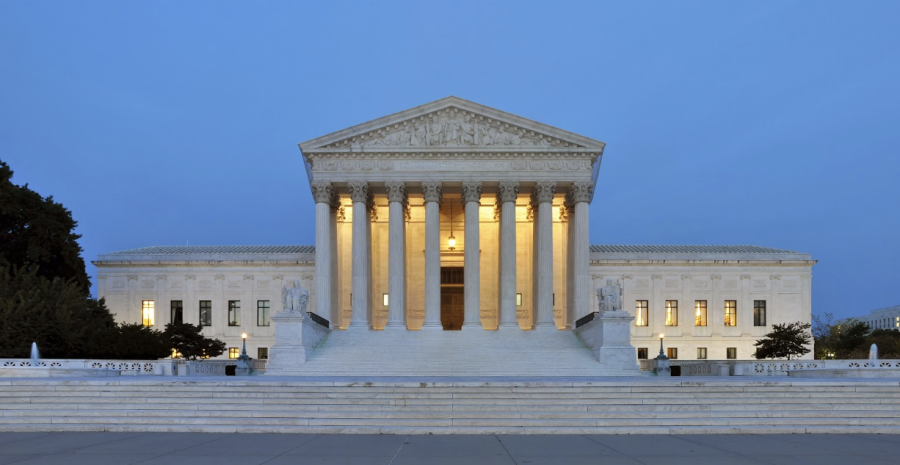We Should Grow the Supreme Court
Nine people. Nine people, appointed for life, who have more sway over laws made or broken than anyone else in the country. This amount of power is a lot for anyone to hold, and there’s no reason it has to be split among such a small and arbitrary number. The fact that with only five people’s votes, gay marriage could become illegal in approximately half of states again, is an unstable and unacceptable system of affecting national law. Instead, I believe that Supreme Court decisions could be much more stable and long lasting with the constitutional interpretations of 100 people, instead of just nine.
In the past, there have been bills introduced by congress to grow the number of Supreme Court Justices from 9 to 13. But this seems like more of a gesture to try and reclaim control of the current leanings of the court, since these bills are usually only introduced when there is a power imbalance of right-leaning versus left-leaning justices. The same congresspeople, no matter how unbiased they might think they are, probably would not have proposed bills to add a couple more people to the court if their side were in control of the court. And this small jump simply isn’t enough. Just like having one vote count as 11% of a decision, having one vote count as 8% of the decision is way too much power for one person’s studies of the US Constitution to hold.
There are, of course, nuances to how the Supreme Court’s structure would have to change to accommodate an influx of people. To avoid having a huge court imbalance from one president appointing all 91 new justices, nominations would need to be spread across multiple presidential cycles and could even be made by minority and majority leaders of the House. For practical purposes, 100 justices couldn’t all have a chance to ask questions to the attorneys coming to present cases to the court, so there would have to be some justices who question and some justices who just observe the whole process. But all of these options could be narrowed down by the Senate and the House, who are the actual legislators who should have influence over laws, rather than too much power going to individual justices.
Every justice being 1% of a decision sounds like a great system to me, and I’ll be standing by that since it will lead to more stable precedents and better supported court decisions.



Chris • Feb 8, 2023 at 12:11 pm
While it may seem that a larger court would add stability, I don’t believe it would. Consider that SCOTUS judges have an average term of 16 years, which means that presidents, on average, replace 2.25 per term. If you increased the number to 101 (there is a reason it is odd), then we would have each president appointing 25.25 per term. While this may even out the power shift it would be a tremendous increase in overhead. It would also add to the instability as you would be more likely to form alliances and votes which were close (51:50) would be much less respected than votes with a clear winner. SCOTUS is supposed to be a non-political body. The idea is that we are appointing the very few top legal scholars who have no agenda but making sure the rest of government follows the constitution. As such, it should not matter who appoints a judge, they are supposed to blindly interpret the constitution. I recognize that in the last few decades that has not always been the case, however perhaps we should look into the process of selection and put pressure on elected officials to stop electing activist judges. There is a reason why “conservative” judges waffle back and forth with their leaning, many times disappointing the party which appointed them, while “liberal” judges are always in agreement, and always fall on party lines of every decision. That’s a clear indication of abuse of process.
Overturning rulings on gay marriage is a current political football, a fear Democrats are promoting despite no proposal to do so. This is a response to the overturning of Roe, but lets look at it objectively. SCOTUS could only overturn such a ruling if it were unconstitutional, to equate it with Roe this would be something like “SCOTUS should not have decided this without constitutional support”. That’s not a rebuke of gay marriage, it’s saying that the process was wrong and it should first be amended into the constitution rather than interpreted as already there. I don’t have a legal opinion on this either way. It was interpreted to be implied by equal rights clauses, but it could also be argued that this is a definitional change, that the definition of marriage has always been hetero. A similar argument for or against polygamy could be made, but the point is that SCOTUS doesn’t make or break policy, they only rule on correct procedure. Abortion, gay rights, all these ‘hot-button’ issues can be made at a federal level with or without SCOTUS “in favor” of them given the correct procedure.
It’s a smart article, but I think it would lead to more gridlock, less confidence in ruling, increased overhead, and an increase in politicization of what is supposed to be clear from politics.